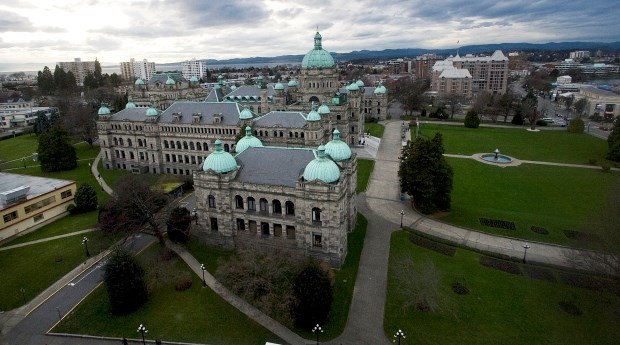Condo residents will develop a sinking feeling once the B.C. government’s moves this week on the insurance crisis are fully digested.
They are ineffectual in the short-term and will only make a mild difference over time.
B.C. is starting a protracted, incremental process to gradually fix an assortment of different problems.
But those problems have already coalesced into a flashpoint that’s kindled a runaway crisis.
And officials are tripping over themselves to explain how complicated and difficult the whole mess is. The more they look at the situation — and they’ve been looking for a few months — the worse it gets.
This week’s legislation promises — eventually — to “end the practice of referral fees between insurers and property managers or third parties.”
Say what?
Referral fee is a polite word for kickback. If insurers are rewarding management companies for giving them business using condo residents’ premiums, the whole process of buying an insurance premium can be compromised.
There’s also the revelation that commissions to brokers can be as high as 20 per cent, which is verging on absurd.
These nuggets came out of just an initial look at the industry after it jacked premium rates by several orders of magnitude and stripped policies so they cover only a fraction of what they once did.
Insurance companies are covering more than $100 billion worth of property in B.C., occupied by 1.5 million people. They collected $300 million a year in premiums even before they jacked the rates up late last year by an average 40 per cent.
Who knows what else the authorities will discover in the followup reports that are underway?
It’s not just the industry that looks suspect.
Damage claims are driving part of the hikes, too, and there’s a pattern of skimping on routine maintenance of buildings and “letting the insurance cover it” when there’s a leak.
There were 11,000 separate water-damage claims in 2018.
If strata councils hired plumbers for checks before emergencies, rather than after, much of this crisis would have been avoided. Similarly, if responsibility was better defined in strata law, careless individuals would pay for their own mistakes, rather than everyone.
The government’s moves this week try to tackle both sides of the problem — the insurance companies’ frantic gouging to make up their losses, and abdication of responsibilities by condo owners.
But the overall effort looks insipid, given they’ll still be studying the crisis this fall, when the next round of sky-high bills starts getting prepared.
The one move that could make a difference in the here and now is a change to allow stratas to use contingency reserves to pay for unexpected premium hikes.
But that will be a one-off benefit for many, because the hikes are so big, they’ll eat a lot of those reserves.
There’s also a move — more accurately, a signal they’re going to eventually move after more consultation — to put more emphasis on regular maintenance checks and “depreciation reports” on buildings.
Municipal Affairs and Housing Minister Selina Robinson said this week’s legislation is a “first step. ”
It’s going to take a lot more steps at a much faster pace to make a noticeable dent in the premiums now being charged.
Any inclination to land harder on the companies for their exorbitant hikes is countered by the fact they can easily walk away from the sector. Some already have because it’s been a money-loser. That would just make things worse.
The flagship for the impact of the crisis in Victoria is still the Shoal Point condos in James Bay.
As reported earlier, their $250,000 premium last year became an $800,000 premium this year, and the water-damage deductible went from $25,000 to $500,000.
That drove a big jump in monthly condo fees, a situation mirrored at thousands of other condo buildings around B.C.
The preliminary report on the crisis summed up the current state of the strata insurance market as “unhealthy.”
It’s much worse than that. It’s on the critical list.
The government’s initial treatment plan makes clear officials are still looking for a way to make a difference.



